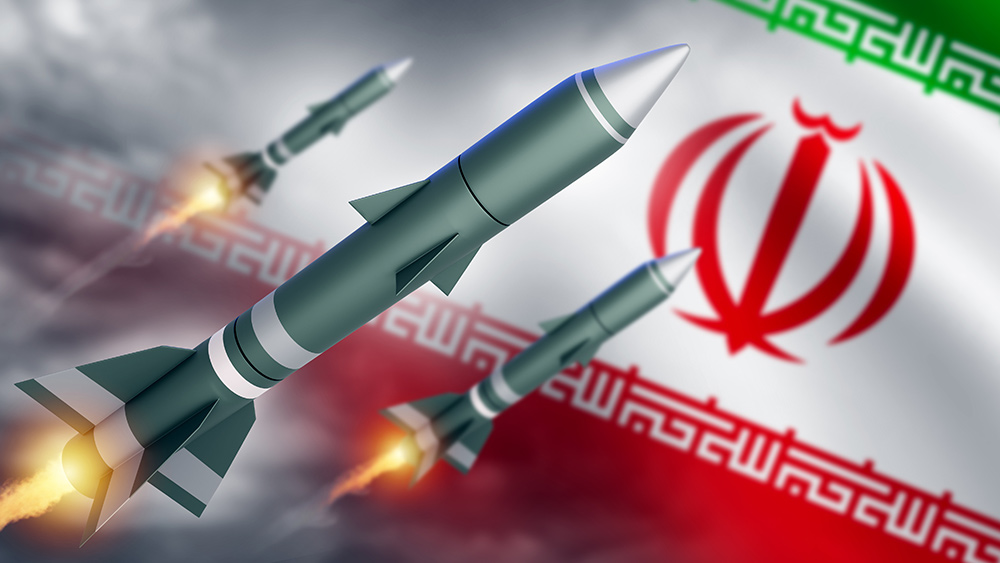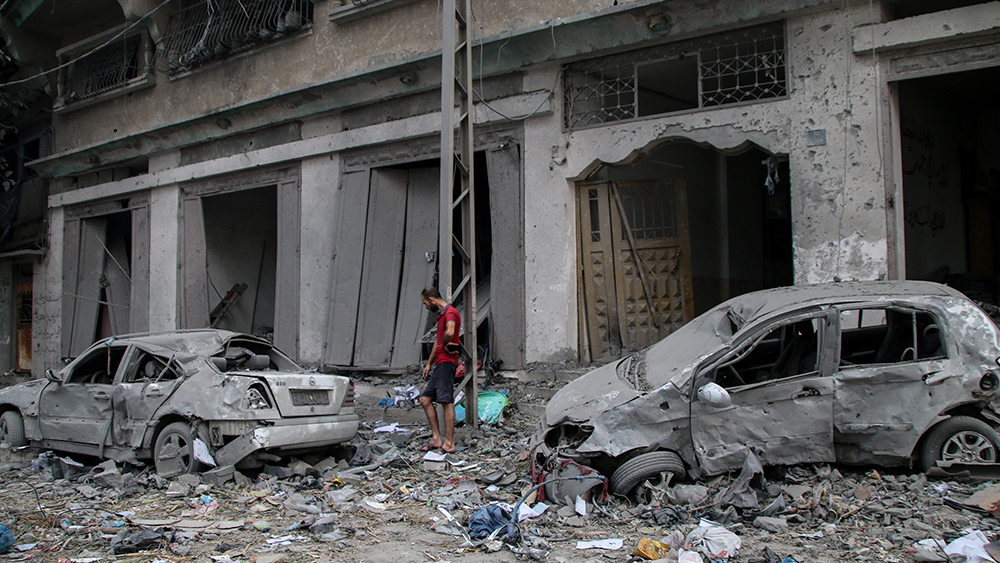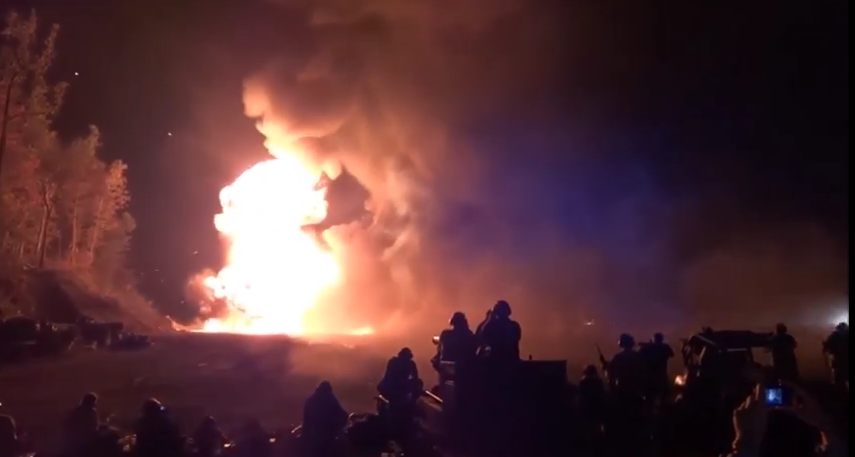Netanyahu will strike military sites within Iran before U.S. elections, source tells WaPo
10/17/2024 / By Belle Carter

Two unnamed officials close to Israeli Prime Minister Benjamin Netanyahu just disclosed to the Biden administration that Israel is planning to launch its attack on Iran before the U.S. presidential elections on Nov. 5, the Washington Post (WaPo) reported.
According to WaPo, the source said that Israel’s waiting could be perceived as a weakness and that the planned strike “will be one in a series of responses” to the Iranian ballistic missile barrage that was fired at Israel on Oct. 1, which was also a response to a series of Israeli attacks.
It was also revealed that the Israeli leader said it wouldn’t wait for a green light from the United States. “The person who will decide on the Israeli response to Iran will be [Netanyahu],” the official said.
However, the strike will target military sites rather than oil or nuclear facilities in Iran, according to the officials familiar with the matter, suggesting a more limited counterstrike aimed at preventing a full-scale war. (Related: Iran warns Israel: Nuclear doctrine may shift if its nuclear facilities are attacked.)
In the two weeks since Iran’s latest missile barrage on Israel, its second direct attack in six months, the Middle East has braced for Israel’s promised response, fearing the two countries’ decades-long shadow war could explode into a head-on military confrontation.
When Biden and Netanyahu spoke, their first call in more than two months of rising tensions between them, something in the conversation made Biden decide to deploy a Terminal High-Altitude Area Defense (THAAD) missile battery to Israel.
On Sunday, Oct. 13, the U.S. Department of Defense announced that it was deploying the THAAD battery system to Israel, along with around 100 U.S. military personnel. The system, which officials say is expected to arrive in the coming days, “underscores the United States’ ironclad commitment to the defense of Israel,” the Pentagon statement said.
Meanwhile, Israel is fighting on multiple fronts. Late last month, thousands of Israeli troops invaded southern Lebanon for the first time in nearly two decades, and last week, the military unleashed yet another punishing offensive in northern Gaza. When it comes to Tehran, figures close to Netanyahu’s team have signaled strategic patience.
The Post noted how the Biden administration has been fully supportive of Israel’s invasion of Lebanon and its escalation of airstrikes against the country. A former Israeli official said the U.S. was “giving Israel and the Netanyahu government a bear hug, but for Hezbollah.”
“It is sending THAAD and promising all kinds of weapons that we need to finish off Hezbollah, saying that we can deal with Iran later,” the former official added.
Netanyahu claims to respond to Iran based on “national interest”
Netanyahu’s office recently claimed that Israel will listen to the U.S. but make final decisions based on its national interest.
The statement came in response to the WaPo story and is seemingly contrary to the unnamed sources’ information.
The overnight Israeli statement indicated that Israel “listens to the American government’s thoughts, but will make our final decisions based on Israel’s national security needs.”
Iran launched almost 200 ballistic missiles towards Israel on the first of October. Most of the projectiles were intercepted, Israel’s military said. At the time, Netanyahu said Iran had made a “big mistake” and would “pay for it.”
According to an anonymous official quoted in the Post, Israel’s retaliatory strike would be designed to avoid the appearance of “political interference” in the upcoming U.S. presidential election, which is less than a month away.
According to analysts, targeting Iranian oil facilities could push up oil prices and affect the polls. The price of crude oil shot up five percent at the beginning of the month, immediately after President Joe Biden spoke about the possibility of an Israeli strike on Iran’s oil infrastructure.
Biden previously said the U.S. does not support any potential strike on Iranian nuclear sites. On Oct. 4, Biden went further, signaling the U.S. would also oppose an Israeli strike on Iran’s oil facilities.
“If I were in their shoes, I would be thinking about other alternatives than striking Iranian oil fields,” he said during a news conference.
Israel has not officially declared how it intends to respond to Iran’s missile attack but Defense Minister Yoav Gallant said last week its reaction would be “deadly, precise and above all surprising.”
“They will not understand what happened and how it happened, they will see the results,” Gallant said.
Meanwhile, Iran responded that it would not let any attack by Israel go unanswered.
Israel and Hezbollah, an Iran-backed militant group, had been trading cross-border fire on a near daily basis since last October, when Hezbollah began firing into Israel which it said was a show of support for Palestinians in Gaza. It claimed that it would stop firing if a ceasefire were implemented in the enclave.
Head over to IsraelCollapse.com to read more stories related to this.
Sources for this article include:
Submit a correction >>
Tagged Under:
Benjamin Netanyahu, big government, chaos, conspiracy, election, escalation, Gaza, Hezbollah, Iran, Israel, Israel collapse, Lebanon, national interest, national security, Pentagon, political interference, politics, retalation, THAAD, Washington Post, WWIII
This article may contain statements that reflect the opinion of the author
RECENT NEWS & ARTICLES
COPYRIGHT © 2017 TERRORISM NEWS




















